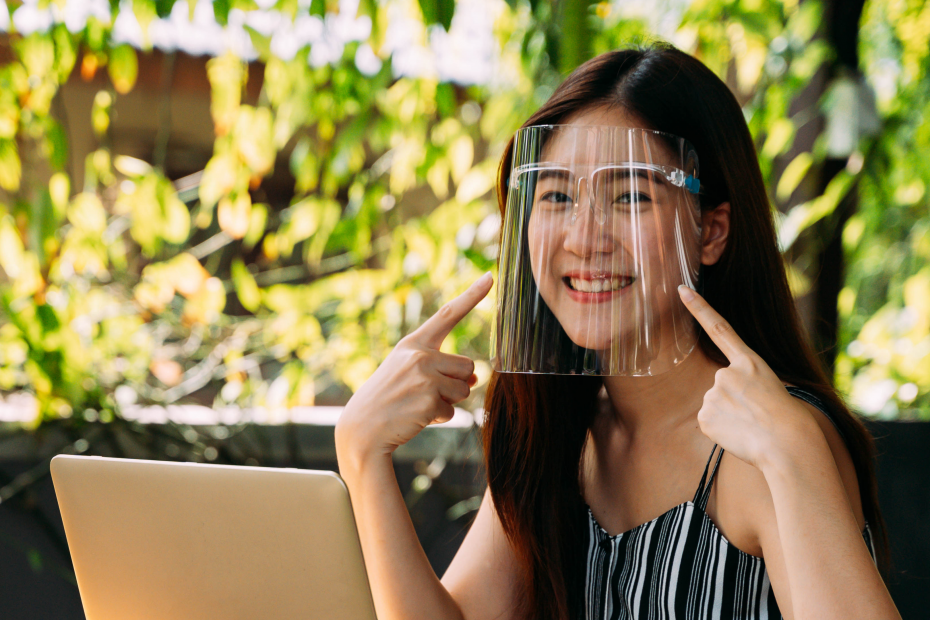We can argue all day about how effective face shields are as protection against the deadly COVID-19. But with the Philippines’ recent downward trends around the number of the daily new coronavirus cases, the government has decided to abandon the use of the plastic face protection for areas which are under Alert Level 3, 2, and 1, including Metro Manila.
How do we move on now that our face shields are basically useless for us?
Well, actually, they are not entirely useless – a Manila-based French social enterprise called The Plastic Flamingo wants to collect and upcycle them.


Also called The Plaf, it started upcycling and recycling plastic wastes in August 2018 but was renamed to its current name in 2019 by its founder Francois Lesage. They were able to collect a total of 111 tons of plastic wastes as of September 2021, and now that face shields are no longer mandatory in most cities in the country, they will have lots of plastic wastes at their disposal – if people will only donate them.
According to their official Facebook page, they have dropoff points across the country including Jollibee stores, Decathlon branches.
Take note, however, that they only accept cleaned plastics including the following: plastic bottles, plastic bags, yogurt containers, plastic Tupperware, plastic egg cartons, sachets & single-use plastic, bubble wrap, bottles of cleaning products, plastic utensils, cups, plates, and face shields. These items are categorized under PET, PVC, HDPE, LDPE, PP, and PS, among others.
After collection, these plastics are transformed into plastic planks, lumbers, and boards. Allison Tan, Communication and Marketing Associate at The Plaf said, “Our planks are resistant to water, which makes them an ideal substitute to wood in many outdoor applications. It is a versatile material that can be used to make furniture, decks, fences, and many other structures.


“We benchmarked the strength of our planks with other unreinforced planks made from 100% plastics, and we do have a similar strength to most of them.”
A 2-meter plank can be created from nine kilos of plastics. This can be used in the construction of houses as a more sustainable option.
Check out their social media channels here to know more about The Plaf, their advocacy, and their current dropoff points:
- Instagram: @theplaf
- Facebook: /theplaf
- Website: www.theplaf.com
Top Photo via Stock
Photos via The Plaf
